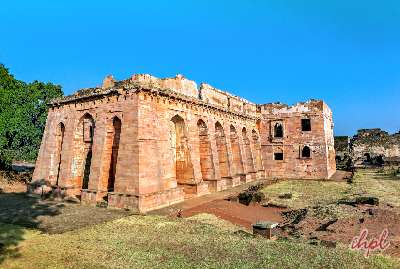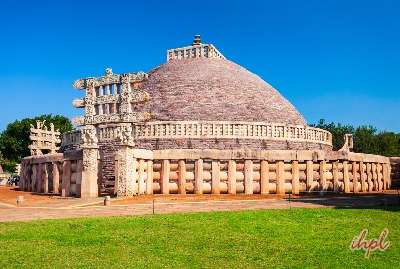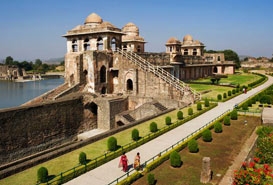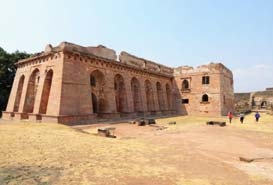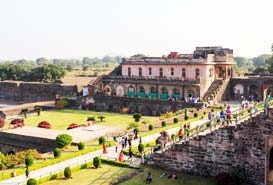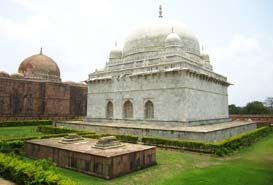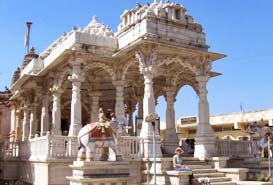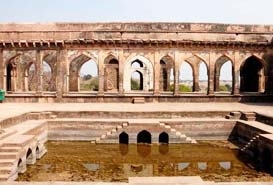The historical city of Mandu in Madhya Pradesh having been, for a long time ruled by the Mohammedans, illustrates architectural depictions that are quintessentially Islamic. On your Tour to Mandu, you can witness some of the most intricate and fine works in the structural manifestations in this city. The Monuments in Mandu happen to be the prime attractions of the place for tourists worldwide.
The Jahaz Mahal, built by Sultan Ghiyasuddin Khilji during his rule of 31 years from 1469, is located between two lakes – the Munji Talao and the Kanpur Talao. As its name suggests, it looks like a ship and that too, a sailing one, in the monsoons. Originally built for a harem of 15,000 women, it still attracts numerous visitors.
Baz Bahadur’s Palace, Mandu, built in 1509, is situated beside the Rewa Kund. Interestingly, it depicts a blend of Rajasthani and Muslim architectural styles. However, the palace was built long before Baz Bahadur came to power.
Explore 18 days India Golden Triangle wth Khajuraho and wildlife tour package, 22 days India Nepal Wildlife tour package.
Another supreme manifestation of Muslim art and architecture is the Hoshang’s Tomb. Built in rich white marble, it illustrates top quality art specimens in the fine carvings in the dome, the lattice, the porticos and courts.
The Monuments in Mandu do not end here. Roopmati’s Pavilion, Mandu, built at the base of the fort, is a spectator area from where you can have lovely views of the flowing Narmada. Quarters of the beautiful lady, Roopmati, it was from here that she used to see Baz Bahadur’s Palace and the holy Narmada.
Between the Hosai village and the Rewa Kund lies Darya Khan’s Tomb and the Hathi Mahal stands beside it. The former once depicted intricate tile work and the latter has pillars resembling elephant’s feet.
Neelkanth Palace, Mandu, was originally a Hindu shrine but with invasions was ravaged by the Muslims and built into a palace. It is reached by a flight of steps by the hillside.
Taveli Mahal, another of the monuments, lies in the south of Jahaz Mahal and in the present day houses the antiquity gallery of the Archeological Survey of India. You have to be in Mandu to experience the thrill of the royal past of the city of Mandu.
Check out our packages: Madhya Pradesh tour packages, Ujjain tour packages, Jabalpur tour packages, Orchha tour packages, Indore tour packages, Gwalior tour packages, Omkareshwar tour packages, Mandu tour packages, Sanchi tour packages.





